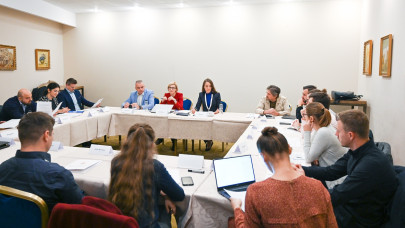In a significant step towards global tax fairness, both Romania and Türkiye have adopted these rules to create a level playing field for businesses in the market.
In Romania, the Pillar 2 initiative was transposed into the domestic tax legislation through Law no. 431/2023, ensuring that multinational enterprises (MNEs) operating in Romania will pay a minimum effective tax rate of 15%. The key rules under this initiative include:
- Income Inclusion Rule (IIR): This applies when the top-up tax is due in the jurisdiction of the group parent entity.
- Under Taxed Profits Rule (UTPR): When IIR is not applicable in the jurisdiction of the group parent entity, this rule imposes top-up taxes in another under-taxed jurisdiction.
According to Liviu Gheorghiu, Tax Partner at Forvis Mazars in Romania, “Multinational entities should begin collecting data for the first reporting covering FY 2024 which will be due in June 2026. The introduction of the global minimum tax brings Romania in line with international standards and ensures a fairer competitive environment for businesses operating here.”
Türkiye has also embraced Pillar 2 in alignment with the OECD/G20 BEPS framework. The Turkish authorities adopted a two-tiered approach, introducing both the global Pillar 2 rules and a Domestic Minimum Tax (DMT), which ensures that corporate income tax cannot be less than 10% of corporate earnings. The Pillar 2 measure will come into effect for fiscal years starting from January 2024, while the DMT will come into effect for fiscal years starting from January 2025.
Key aspects of Türkiye's approach include:
- Qualified Domestic Minimum Top-up Tax (QDMTT): Ensures MNEs pay at least 15% tax.
- Transitional CbCR Safe Harbour: Provides relief for entities with low revenues or simplified effective tax rates, allowing certain jurisdictions to avoid top-up taxes.
Romania's improved tax rules and transparency efforts
In addition to the global minimum tax, Romania has moved towards VAT digitalisation through the introduction of e-VAT, a pre-filled VAT return system designed to enhance tax collection and reduce errors.
The e-VAT system became operational on 1 August 2024, and covers economic activities conducted from 1 July 2024. The system integrates data from various sources, including e-Invoice, e-Transport, and e-SAF-T, and is designed to simplify VAT returns for taxable entities. Once the pre-filled VAT returns are submitted to the registered entities via the Virtual Private Space, they must verify the data and address any discrepancies identified by the ANAF.
„Notably, if a business fails to respond to discrepancies - defined as differences of at least 20% or a minimum of RON 5,000 - within 20 days, it will face fines ranging from RON 1,000 to RON 10,000, depending on the company's size. Failure to provide or correct information by January 2025 also places entities at risk for tax inspections or improper VAT refunds,” mentioned Mihaela Hampu, Senior Tax Manager, Forvis Mazars in Romania.
Key features include:
- Pre-filled returns: Automatically generated from economic activities reported in the national tax systems, accessible to VAT-registered entities by the 5th of each month.
- Compliance monitoring: If discrepancies of at least 20% or a minimum of RON 5,000 exist between filed and pre-filled returns, the tax authority (NAFA) will notify taxpayers, allowing 20 days to respond before potential fines.
Moreover, NAFA has intensified its tax audit activities. In June 2024 alone, over 4,200 inspections and 1,700 anti-fraud controls were conducted, targeting sectors like transport, retail, and manufacturing. The VAT remains a central focus of these inspections, underscoring the authority's commitment to reducing Romania's VAT gap.
Noteworthy aspects of tax audits include:
- Fines for non-compliance: From January 2025, large taxpayers face fines ranging between RON 5,000 and 10,000 if discrepancies in VAT returns aren't resolved in time.
- Focus on VAT refunds: Entities at risk of improper VAT refunds face potential tax audits and anti-fraud investigations.
As both Romania and Türkiye tighten their fiscal controls and introduce more stringent tax frameworks, businesses will need to proactively manage their compliance strategies to ensure they meet both domestic and international tax standards. Preparing now for these sweeping changes will not only help avoid penalties but also support long-term financial planning and stability in an increasingly regulated global market.









